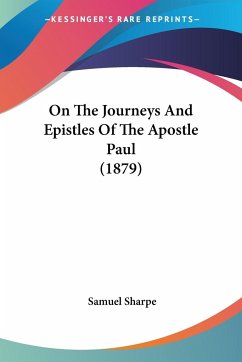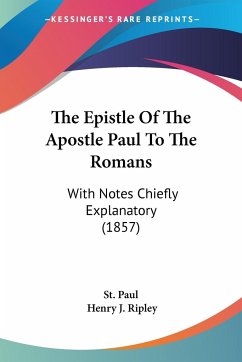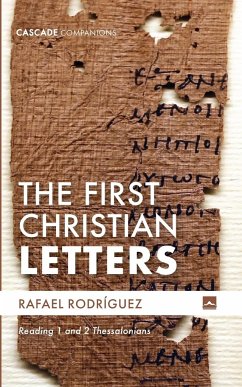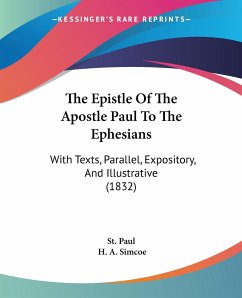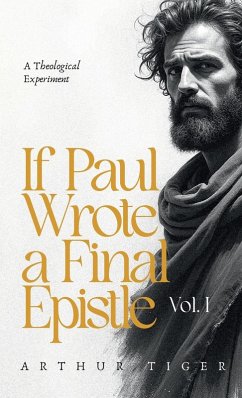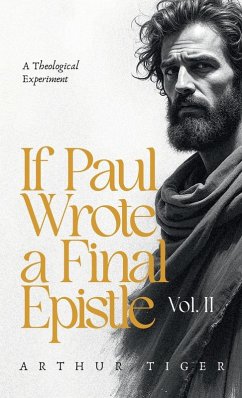
The Lost Epistles of Paul
What Was Left Outside the New Testament
Versandkostenfrei!
Versandfertig in 1-2 Wochen
26,99 €
inkl. MwSt.

PAYBACK Punkte
13 °P sammeln!
"The Lost Epistles of Paul" presents a bold exploration of the "unknown Paul" - reconstructing lost letters mentioned in the New Testament, uncovering theological reflections implicit in his thought, and imagining epistles the apostle might have written to various recipients. Between the lines of Paul's canonical epistles lies a wealth of lost thoughts and letters. In this groundbreaking study, Arthur Tiger reconstructs: Part I: Lost LettersThe First Letter to the Corinthians (before canonical 1 Cor) The "Letter of Tears" to the Corinthian church The Epistle to the Laodiceans Missing fragments...
"The Lost Epistles of Paul" presents a bold exploration of the "unknown Paul" - reconstructing lost letters mentioned in the New Testament, uncovering theological reflections implicit in his thought, and imagining epistles the apostle might have written to various recipients. Between the lines of Paul's canonical epistles lies a wealth of lost thoughts and letters. In this groundbreaking study, Arthur Tiger reconstructs: Part I: Lost LettersThe First Letter to the Corinthians (before canonical 1 Cor) The "Letter of Tears" to the Corinthian church The Epistle to the Laodiceans Missing fragments of the Epistle to the Philippians Part II: Unspoken ThoughtsPaul's profound ecclesiology Expanded eschatology Christology beyond the canon Interaction with Judaism and Hellenism Part III: Impossible LettersA hypothetical epistle to the Jerusalem church A letter to Roman authorities An address to women leaders An epistle to future generations Based on careful analysis of historical context and Paul's theological logic, this book offers a fresh perspective on the central figure of early Christianity. We encounter a more complex and multifaceted Paul - one whose theological vision extends beyond what survived in his canonical letters. The book illuminates not only the apostle's world but offers fresh insights for the contemporary church navigating its own theological and practical challenges. The book offers a unique methodological approach that balances historical analysis with creative theological reconstruction. While acknowledging the speculative nature of reconstructing lost writings, Tiger grounds his work in careful textual analysis and historical context. What makes this book particularly useful is how it bridges ancient texts with contemporary relevance, showing how Paul's unspoken theological premises might address modern church challenges regarding unity, diversity, institutional reformation, gender roles, and cultural engagement. For readers interested in early Christianity, biblical interpretation, or Pauline theology, this book provides thoughtful explorations that respect historical context while opening new avenues for understanding one of Christianity's most influential figures.



